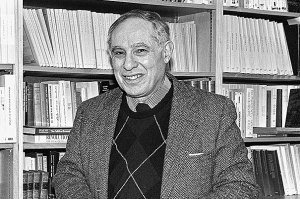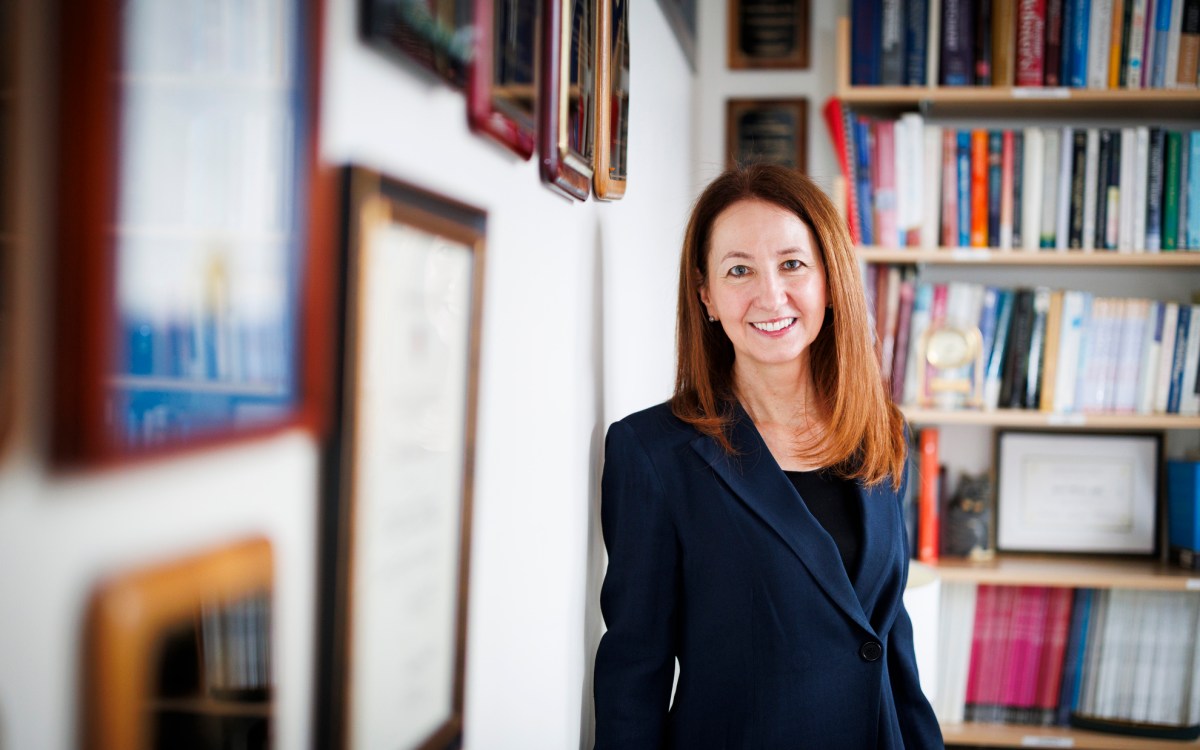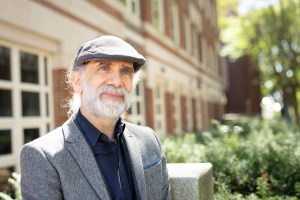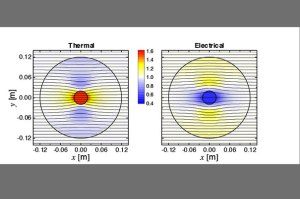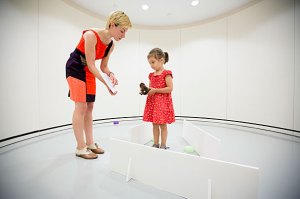Tag: Reuell
-
Health
Viewing how neurons work
A new technique for observing neural activity will allow scientists to stimulate neurons and observe their firing pattern in real time. Tracing those neural pathways can help researchers answer questions about how neural signals propagate, and could one day allow doctors to design individualized treatments for a host of disorders.
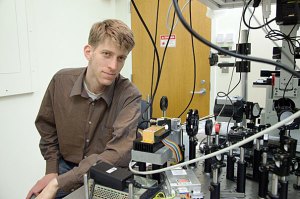
-
Campus & Community
5 named Harvard College Professors
Their scholarly interests range from the design of programming languages to health economics to the molecular changes that influence evolutionary fitness. One thing the five faculty members who were awarded Harvard College Professorships in recent weeks have in common is a gift for instilling passion for education in their students.
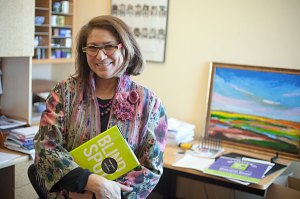
-
Science & Tech
Delving into dark matter
Harvard physicists have suggested that a disk of dark matter may lie along the center line of the galaxy.
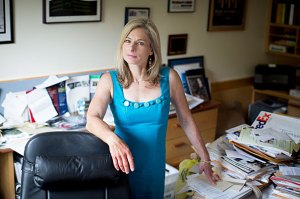
-
Science & Tech
Flipping the switch
Harvard researchers have succeeded in creating quantum switches that can be turned on and off using a single photon, an achievement that could pave the way for the creation of highly secure quantum networks.
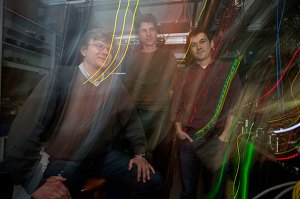
-
Science & Tech
MRI, on a molecular scale
A team of scientists led by Professor of Physics and of Applied Physics Amir Yacoby has developed a magnetic resonance imaging (MRI) system that can produce nanoscale images, and may one day allow researchers to peer into the atomic structure of individual molecules.
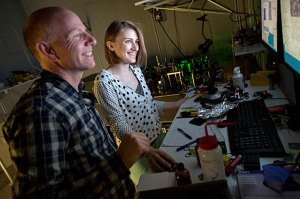
-
Campus & Community
Opening academia widely
In an effort to dispel the notion that graduate school and careers in academia are generally beyond the reach of minority students, Harvard hosted the second Ivy Plus Symposium.
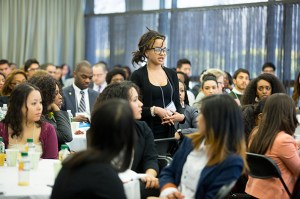
-
Science & Tech
Bringing order to the court
New Harvard research points to a sharper method for evaluating basketball players.
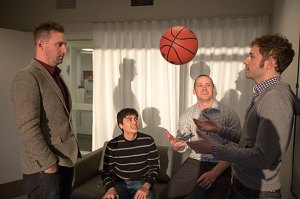
-
Science & Tech
Negative plus
Led by Professor David Liu, a team of researchers has developed a technique to continuously evolve biomolecules that uses negative selection — the ability to drive evolution away from certain traits — to create molecules with dramatically altered properties.
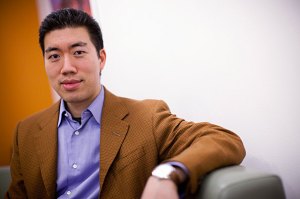
-
Science & Tech
Mars rover, slightly used, runs fine
Originally scheduled to operate on the Red Planet’s surface for 90 Martian days, the rover Opportunity has now logged more than 3,500 days, traveled nearly 39 kilometers, and collected a trove of data that scientists have used to study the planet’s early history, particularly any past traces of water.
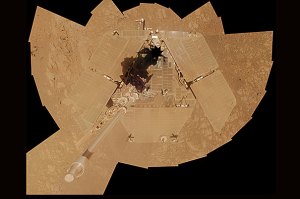
-
Health
‘On’ switches for cells
Scientists at Harvard have identified a previously unknown embryonic signal, dubbed Toddler, that instructs cells to move and reorganize themselves, through a process known as gastrulation, into three layers.
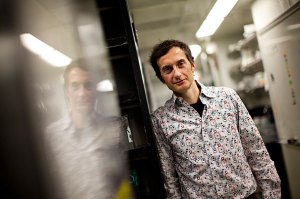
-
Campus & Community
A break to explore
January@GSAS offered more than 100 classes, seminars, and training sessions to students in Harvard’s Graduate School of Arts and Sciences during semester break. Students had the chance to escape the lab or library, and spend time exploring subjects that might not otherwise appear in a Harvard course catalog.
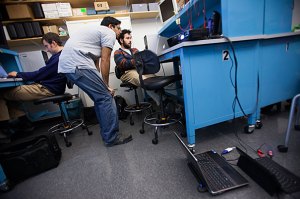
-
Health
Inconsistent? Good
Though variability is often portrayed as a flaw to be overcome, Harvard researchers now say that, in motor function, it is a key feature of the nervous system that helps promote better or more successful ways to perform a particular action.

-
Health
Something doesn’t smell right
Harvard scientists say they’re closer to unraveling one of the most basic questions in neuroscience — how the brain encodes likes and dislikes — with the discovery of the first receptors in any species evolved to detect cadaverine and putrescine, two of the chemical byproducts responsible for the distinctive — and to most creatures repulsive…
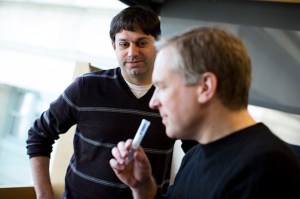
-
Science & Tech
Measuring electrons
In making the most precise measurements ever of the shape of electrons, Harvard and Yale scientists have raised serious doubts about several popular theories of what lies beyond the Higgs boson.
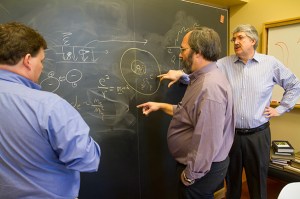
-
Health
Your gut’s what you eat, too
A new Harvard study shows that, in as little as a day, diet can alter the population of microbes in the gut – particularly those that tolerate bile – as well as the types of genes expressed by gut bacteria.
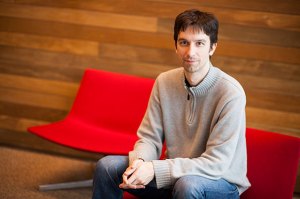
-
Science & Tech
Muting the Mozart effect
Though it has been embraced by everyone from advocates for arts education to parents hoping to encourage their kids to stick with piano lessons, two new studies conducted by Harvard researchers show no effect of music training on the cognitive abilities of young children.

-
Campus & Community
Liu named Marshall Scholar
Brandon Liu has been named one of 36 students nationwide to receive a Marshall Scholarship, which will allow him to study for two years at a university in the United Kingdom.
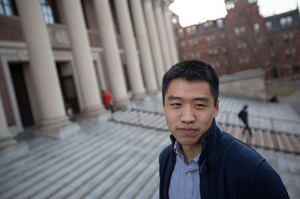
-
Health
Polly want a vocabulary?
Irene Pepperberg, best known for her work with an African grey parrot named Alex — whose intelligence was estimated as equal to that of a 6-year-old child — recently relocated her lab to Harvard, where she continues to explore the origins of intelligence by working with birds.
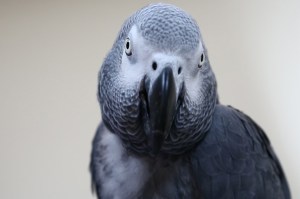
-
Campus & Community
Harvard leads in Fulbright awards
Harvard is the leading producer of Fulbright Scholars for 2013–14, with 44 students — 32 from Harvard College and 12 from the Graduate School of Arts and Sciences — receiving the prestigious grants to conduct research or teach abroad. Of the 44, 39 accepted the awards.

-
Campus & Community
Top-notch teachers
Edo Berger, the John L. Loeb Associate Professor of the Natural Sciences, and Anne Pringle, an associate professor of organismic and evolutionary biology, have been named the recipients of the 2013 Fannie Cox Prize for Excellence in Science Teaching.
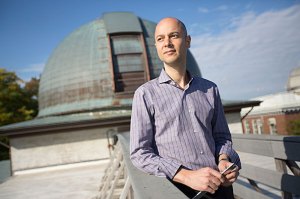
-
Campus & Community
Nine named 2013 Cabot Fellows
Nine professors in Harvard’s Faculty of Arts and Sciences have been named Walter Channing Cabot Fellows. The 2013 honorees were awarded for their distinguished publications.
-
Health
New insight on wild nights
New research suggests that, despite moonlight’s apparent hunting advantage, large predators such as lions are actually less active on the brightest nights, while many prey animals — despite the risk of being eaten — become more active.
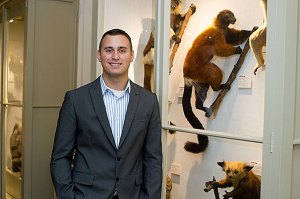
-
Science & Tech
The teaching launch
A new study found that middle school teachers can have a real impact not only on students’ short-term educations, but on whether they attend college and on the size of their future paychecks.
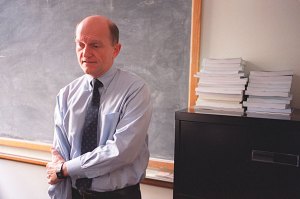
-
Science & Tech
What’s in a face?
Using scans of the brain, Harvard researchers show that patterns of neural activity change when people look at black and white faces, and male and female faces.
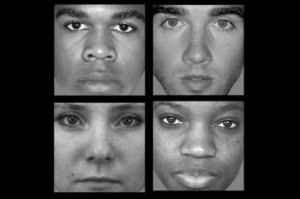
-
Campus & Community
The future is now for FAS
Faculty of Arts and Sciences Dean Michael D. Smith recently spoke about the priorities for the coming campaign and his vision for the FAS.
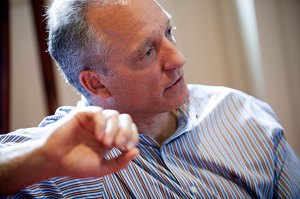
-
Science & Tech
Seeing light in a new way
Working with colleagues at the Harvard-MIT Center for Ultracold Atoms, Professor of Physics Mikhail Lukin and post-doctoral fellow Ofer Firstenberg have managed to coax photons into binding together to form molecules — a state of matter that, until recently, had been purely theoretical.
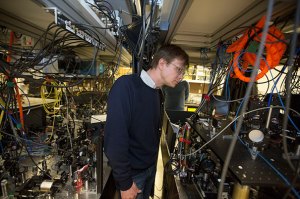
-
Health
Deconstructing motor skills
Harvard researchers have found that the brain uses two largely independent neural circuits to learn spatial and temporal aspects of complex motor skills.
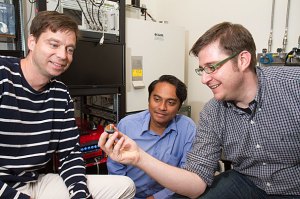
-
Campus & Community
David S. Landes, 89, dies
David S. Landes, a renowned historian whose work focused on the complex interplay of cultural mores and historical circumstance, died Aug. 17 at age 89.
